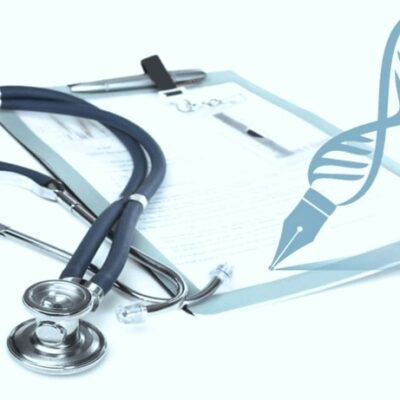Description
The Advanced Diploma in Pharmacovigilance & Medical Writing (ADPV-MW) is an e-learning program designed to provide students a complete understanding of Pharmacovigilance processes, regulations and documentation as well as equip you with the skills required for writing clinical study reports as well as various clinical trial, regulatory and other scientific documents. It equips you to start a career in Drug Safety or as a Pharmaceutical Medical Writer. The course is delivered through our learning portal and is aligned to the requirements of the industry.
The Advanced Diploma in Pharmacovigilance & Medical Writing course is aligned to the requirements of the industry. It includes hands-on training modules on Oracle Argus Safety for Pharmacovigilance which is an enterprise application used in pharmacovigilance by most Fortune 500 pharmaceutical companies and contract research organizations,.
The course comprises 20 modules, 124 chapters, 123 Quizzes and comprehensively covers all aspects of pharmacovigilance and medical writing thus making you eligible for both roles in the industry. At the end of this you can choose to explore a career in pharmacovigilance, drug safety data management and medical writing. This enables you to develop multiple skills and be eligible for a wider set of opportunities.
On completing your enrolment for the program you will instantly get access to our online learning portal and the relevant software.
This course includes access to latest version of Oracle Argus Safety – version 8.2.3.1 software for hands on practical experience.
Curriculum
Course Stats – 20 Modules, 124 Chapters, 123 Quizzes
Module 1 – General Introduction
- Pharmaceutical & CR – Industry Overview
- Introduction to Clinical Research
- Stakeholders and Roles in Clinical Research
- History and Milestones in Clinical Research
- Principles of Good Clinical Practice
- Technologies in Clinical Trial Management
- Overview of Clinical Research Regulatory Bodies
Module 2 – Epedemiology and Evidence Based Medicine (EBM)
- Epidemiology 1 – Introduction
- Epidemiology 2 – Concept of Causation
- Epidemiology 3 – Epedemiological Study Designs
- Epidemiology 4 – Statistics
- Evidence Based Medicine
Module 3 – Principles of Pharmacovigilance
- General Overview of Pharmacovigilance
- History and aim of Pharmacovigilance
- Drug dependence
- Vaccine Vigilance
- Principles of Signal Detection in Pharmacovigilance
- Communication in Pharmacovigilance
- Post-Marketing Surveillance
Module 4 – Pharmacovigilance and Selected System Organ Classes
- Dermatological ADRs
- Gastrointestinal ADRs
- Haematological ADRs
- Renal ADRs
- Ocular Side Effects of Prescription Medications
- Drug Safety in Pregnancy
- Hepatic Drug Reactions
- Anaesthetic Adverse Drug Reactions
- Pharmacovigilance in Pediatrics
- The Cardiovascular Spectrum of Adverse Drug Reactions
- Drugs and the Elderly
Module 5 – Pharmacovigilance Systems
- Audits and Inspections in Pharmacovigilance
- Pharmacovigilance Department
- Qualified Person for Pharmacovigilance
- Standard Operating Procedures in Pharmacovigilance
- Literature Review
- MedDRA
- Eudravigilance
- Assessment of Compliance
- Mergers and Acquisitions
- Softwares used in Pharmacovigilance
Module 6 – Global Pharmacovigilance and Safety Standards
- WHO & Safety Reporting
- CIOMS Groups & Functions
- Good Pharmacovigilance Practice
Module 7 – Pharmacovigilance Regulations and Guidelines
- Safety Reporting
- Individual case safety reports
- Periodic safety update reports
- Indian Regulations with specific reference to Schedule Y
- Regulatory Pharmacovigilance in EU
Module 8 – Pharmacoepedemiology
- Introduction to Pharmacoepidemiology
- Molecular Genetic Pharmacoepidemiology
- Analysis of Pharmacoepidemiological Data
- Studies of Drug Use
- Case Control Studies
- Cohort Studies
- Data Sources
- Measures of Frequency & Risk
- Advanced Issues in Pharmacoepidemiology
- Errors in Pharmacoepidemiology
Module 9 – Oracle Argus Safety Essentials
- Overview and Navigation
- Overview of Argus Menus
- Case Form Features
- Drug and Event Coding
- Case Entry and Processing
- Advanced Conditions
- Reporting and Submissions
Module 10 – Basics of Good Medical Writing
- Introduction & Scope of Medical Writing
- Good Versus Poor Scientific Writing – An Orientation
- Statistics in Medical Writing
Module 11 – Computer Skills
- MS Word, Excel & Other Open Source Software
- Effective Internet Literature Search
Module 12 – Overview of the Regulatory, Marketing and Drug Promotion Process
- Introduction to Regulatory Medical Writing
- Investigation New Drug & Investigational Device Exemption Application
- Protocols, Amendments & Study Reports
- Investigator Brochure & Product Labels
- NDA’s, BLA’s & PMA’s
- Annual Reports
- Product Labeling
- Abstracts & Posters for Scientific Meetings
- Manuscripts for Publication in Scientific Journals
- Legal-Copyright-IP Issues in Medical writing
Module 13 – Common Technical Document
- Introduction and overview of CTD and eCTD
- Putting it all together – CTD Module 1
- Putting it all together – Producing the CTD Modules
- Multi-region submissions & submission standards
- Interfacing with regulatory agencies and answering queries
- Aggregate safety reports
Module 14 – Protocol, Investigator’s Brochure and Case Report Forms
- Writing clinical study protocols
- Introduction to writing Investigator Brochure’s
- Writing case report forms
- Writing regulatory compliant informed consent forms
- ICSR – Patient Narratives
Module 15 – Clinical Study Report
- Parts of a Clinical Study Report
- Templates & Boilerplate Text
- Tips on writing each section of the CSR
Module 16 – Sentence Control
- Fundamentals of Sentence Construction
- Controlling Voice of Sentence for Readability
- Correct Punctuation
- Consistency in Tense Use
- Imprecise Words and Phrases
- Word Order and Pronouns
- Subject – Verb Agreement
Module 17 – Writing Flow and Cohesiveness
- Writing Effective Paragraphs
- Using Effective Data Displays
- Using Style Guides for Consistent Medical Writing
- Overcoming Writers Block
Module 18 – Publication Writing
- Structure of a Scientific Paper
- Electronic Submissions
- Abstract for Scientific Meeting
- Case Report
- Review
- Ethics of Publication
- Guidelines of Publication (e.g. CONSORT, ICMJE, GPP)
- Referencing Guidelines & Taking Software’s Help
Module 19 – Documents in Medico-Marketing
- Leave behind literature (LBL), Visual Aids and Brochure’s
- Continuing Medical Education (CME) for Doctors
- Evidence Based Medicine
- MR Training Manual
- Web Content, Audio-Visual Aids, CDs
Module 20 – Managing the Review Process
- Effective Review Practices
- Managing Incongruous Comments from Reviewers & Reaching Concurrence
- Process Flow and Metrics for Managing Regulatory Submissions
Course Completion
- Final Assessment
- Course Certification
Certification
At the end of the course, students will be awarded a certificate of completion.
Duration
The duration of this program is 6 months.
You will have access to the course, and Argus Safety software for the duration of the program.





Reviews
There are no reviews yet.